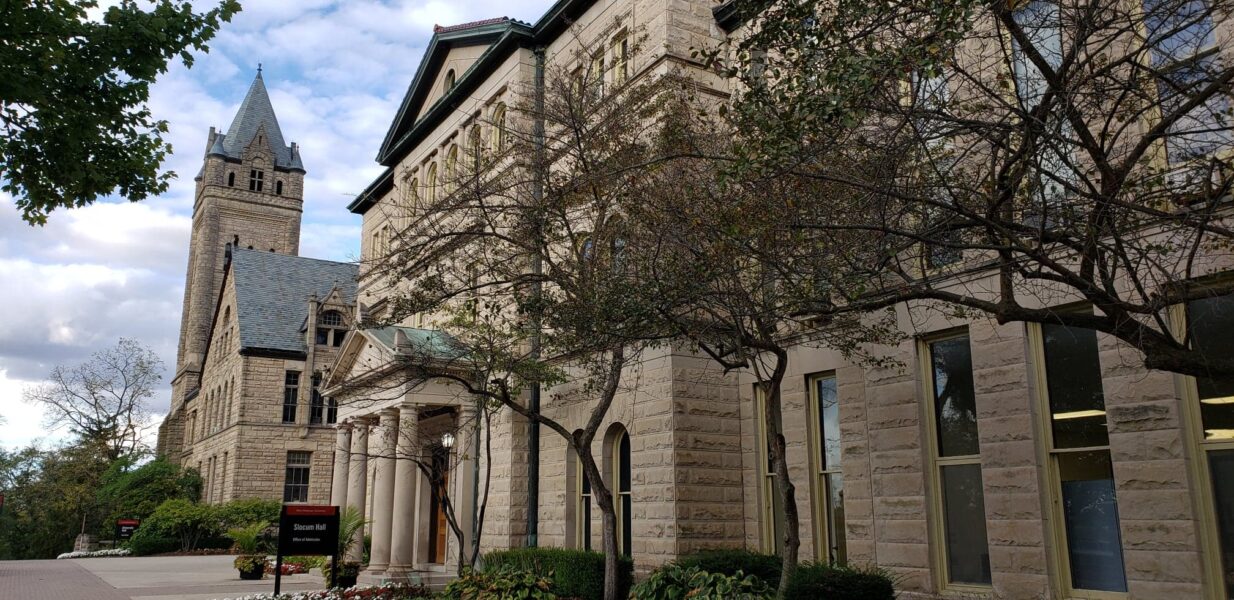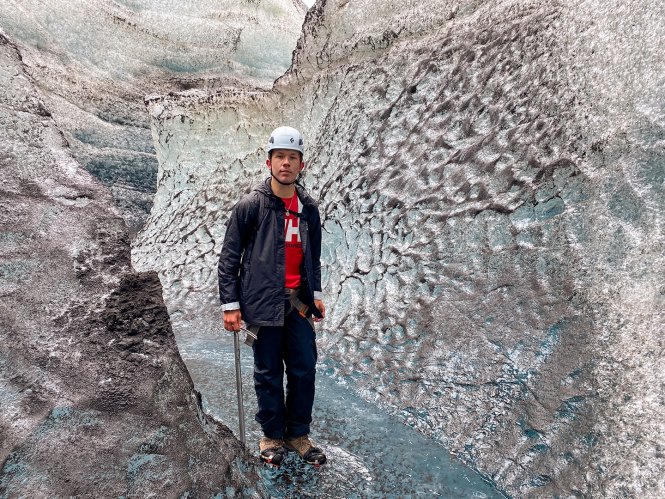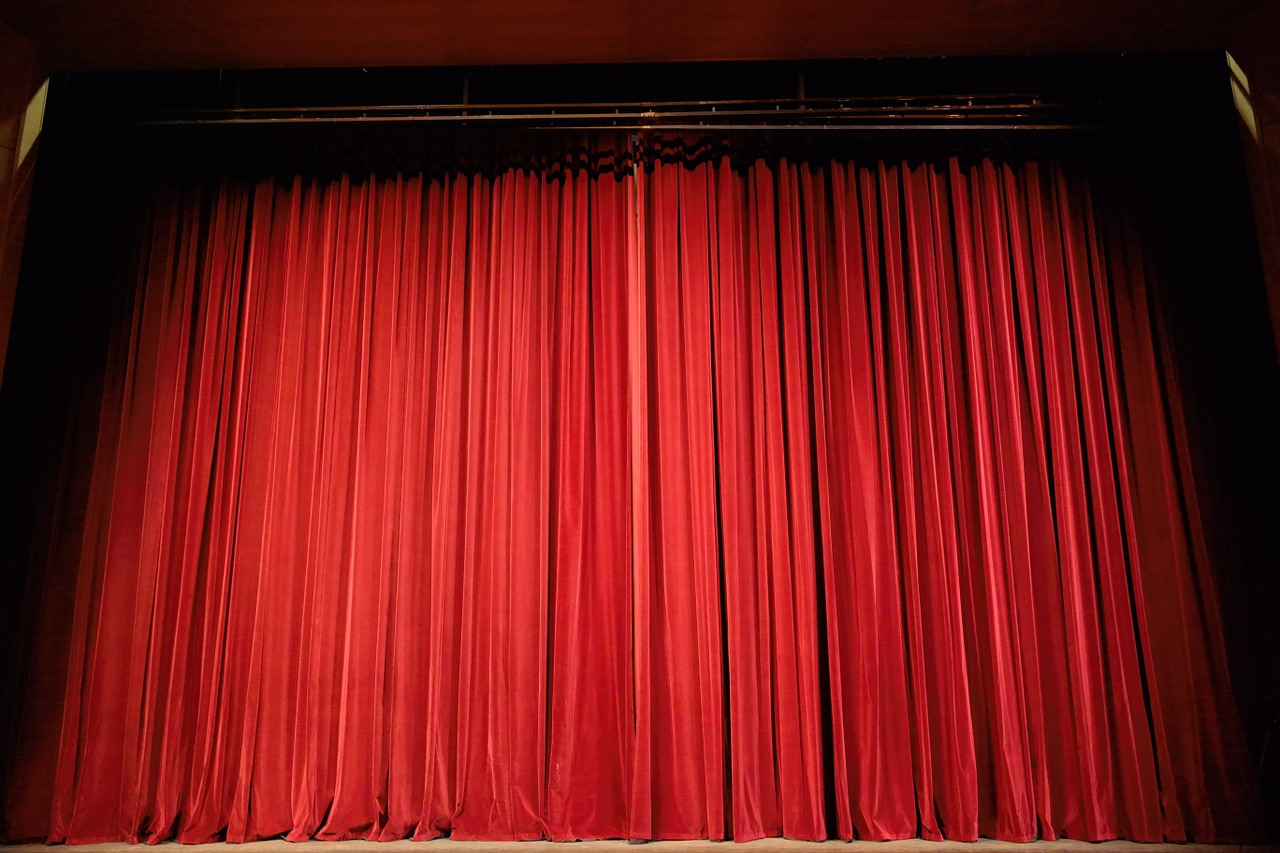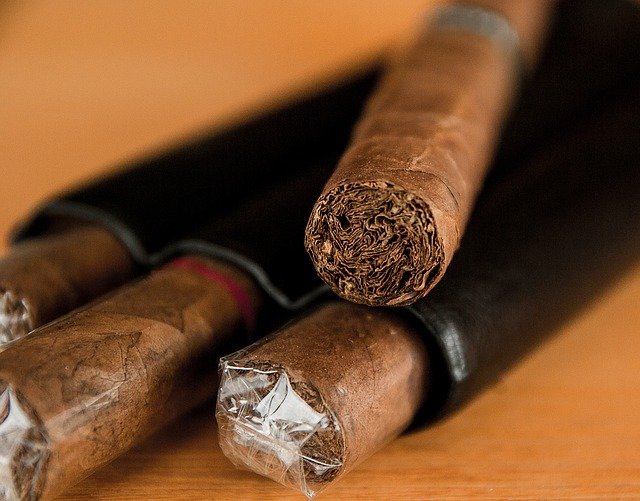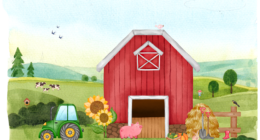By Cole Hatcher
Ohio Wesleyan University is awarding more than $60,700 in competitive Theory-to-Practice Grants this spring to help students complete OWU Connection experiences that apply their academic knowledge to hands-on, real-world projects outside the classroom.
The university awards multiple rounds of Theory-to-Practice Grants (TPGs) each academic year to support its signature student experience, the OWU Connection.
As of fall 2023, the OWU Connection will be fully incorporated into the university’s curriculum, requiring all students to complete at least one project that requires them to Think Big (complete undergraduate research), Do Good (participate in community-engaged learning, including student leadership), Go Global (complete off-campus study), or Get Real (explore their future careers through meaningful internships and externships).
Those earning spring 2023 Theory-to-Practice Grants and their related OWU Connection projects are:
“Remote Sensing Using Multispectral Cameras in Coastal Costa Rica”
Submitted by student Ben Buroker, a junior from Saunderstown, Rhode Island. Buroker will travel to Bahia Ballena, Costa Rica, for a week in July to “capture multispectral remotely sensed imagery of the environment with the goal of generating a high-quality interactive map which will display the town, vegetation type, and the geography of the area.” His project expands upon previous work completed by Nathan Rowley, Ph.D., associate professor of Environment and Sustainability.
“Rehabilitation and Conservation of Vietnamese Wildlife”
Submitted by student Lan Do, a junior from Marysville. Do will travel to Vietnam for four weeks in July to work with Saving Vietnam’s Wildlife, a nonprofit organization that works to rehabilitate and care for endangered and vulnerable wildlife. “Through working with this organization, I will gain real-world experience in the conservation of endangered species,” Do says. “I will work along the organization teams to provide care for animals and participate in field work for some of these species.”
“Books to Pills: How Medical Education is Translated to Treatment in Indian Medical Systems”
Submitted by student Mayukha Dyta, a senior from Powel, who plans to graduate in December. Dyta will travel to Goa, India, in June, July, and August to conduct research at Goa Medical College. Her project will expand upon research she conducted last summer at the college. “In highly diverse patient populations, such as India, the method of diagnosis and treatment becomes more holistic to meet the needs of their patients,” Dyta said. “This (project) aims to understand how medical students are taught these methods of diagnosis, and the connection between classroom and practice using common ethnographic research methods.” She will analyze the results in an independent study with Vanessa Hildebrand, associate professor of Sociology-Anthropology.
“OWU Summer Music Camp”
Submitted by Richard Edwards, Ph.D., professor of Music. His grant will help to support 20 Ohio Wesleyan students working as camp counselors at the OWU Summer Music Camp, a service-based community arts project for middle and high school students in band, choir, and orchestra. For the first time, the camp will offer both day and overnight camp experiences. The OWU students, Edwards says “are actively involved in guiding campers through many enriching activities every day of camp.”
“Proteolytic bacteria isolated from feathers”
Submitted by student Natalia Molotievskiy, a sophomore from Columbus. Molotievskiy will use her OWU Connection grant to support a six-month research project between September and February 2024 at Ohio Wesleyan for which she will use equipment including the university’s scanning transmission electron microscope. Molotievskiy will be advised by Laura Tuhela-Reuning, Ph.D., senior lecturer of Biological Sciences who teaches students to use the electron microscope. “This project is a valuable opportunity to gain experience in a scientific context from the beginning to the end,” Molotievskiy says. “Through collaboration with OWU and applying a set of microbiological, biochemical, and molecular methods, we hope to provide an efficient and effective sourcing of keratinolytic microorganisms.”
“Spanish Early Modern Theater Performance and Workshop”
Submitted by Glenda Nieto-Cuebas, Ph.D., OWU’s George and Louise Peters Professor of World Languages and Cultures, Spanish. Her project will help up 12 or more students to “understand how contemporary female directors and playwrights are reimagining and transforming early modern Hispanic plays for the contemporary stage” through her upper-level class, “When a Woman Runs the Show: Early Modern Hispanic Theatre on the Contemporary Stage.” The class will host a professional theater company from Spain – Estival Teatro – and stage a live public performance of “Qué de noche lo mataron,” based on the 17th-century text “El caballero de Olmedo.”
“Comparison of the gut microbiome of canines across purebred French bulldogs and mill-bred dogs”
Submitted by student Ireland Nowak, a junior from Thousand Oaks, California. She will conduct her research throughout the 2023-2024 academic year. “To learn more about the canine microbiome, specifically the impact of the environment, fecal samples of dogs raised in a home will be analyzed and compared to mill bred dogs to identify differences in the genetic makeup and bacterial species composition of their gut microbiome,” Nowak says. She will be advised by Kiley Lewin, Ph.D., visiting assistant professor of Biological Sciences, and Kayce Tomcho, Ph.D., assistant professor of Chemistry.
“Ethnobotany and Enslavement: Erasure of Botanical Medicine in the Diaspora”
Submitted by student Carly Sanders, a junior from Painesville, with co-applicants Dawn Chisebe, OWU’s chief diversity officer and part-time instructor in Africana, Gender, and Identity Studies, and Laurel Anderson, Ph.D., the Morris Family Professor of Natural Sciences. The trio will travel to Ghana for a week in January 2024 and combine their skills and knowledge to deepen their understanding of the botanical medicine that originated in this region of Africa. “This project encompasses an investigation into the history and reasons behind the disappearance of forms of botanical medicine from West/West Central Africa that would have been brought to the United States by enslaved people,” Sanders says. Ohio Wesleyan graduate Stanilaw Osei-Bonsu, Class of 2009, has assisted the group in initiating contacts within Ghana.
“Living Latin in Rome and Florence”
Submitted by student Noelle Weaver, a junior from Dublin, Ohio, with co-applicant Mo Halasey, a first-year student from Collinsville, Illinois. They will spend four weeks in July living and studying in Italy. “The purpose of this project is to take the rare opportunity as Classics students for Latin immersion in Italy by participating in two intensive on-site seminars,” Weaver says. The Living Latin in Rome seminar provides a unique experience in spoken Latin with a focus on furthering our own language fluency and providing new pedagogical methods with ‘living Latin’ to teach in the classroom. … We will also use the Women Latinists in Florence seminar to explore the spaces of literary production of women authors, using primary sources and on-site workshops to develop and practice our research and language skills.”
After students complete their OWU Connection experiences, they prepare reports and give public presentations based on their objectives and experiences. Learn more at owu.edu/Connection.
Photo: 1808Delaware
